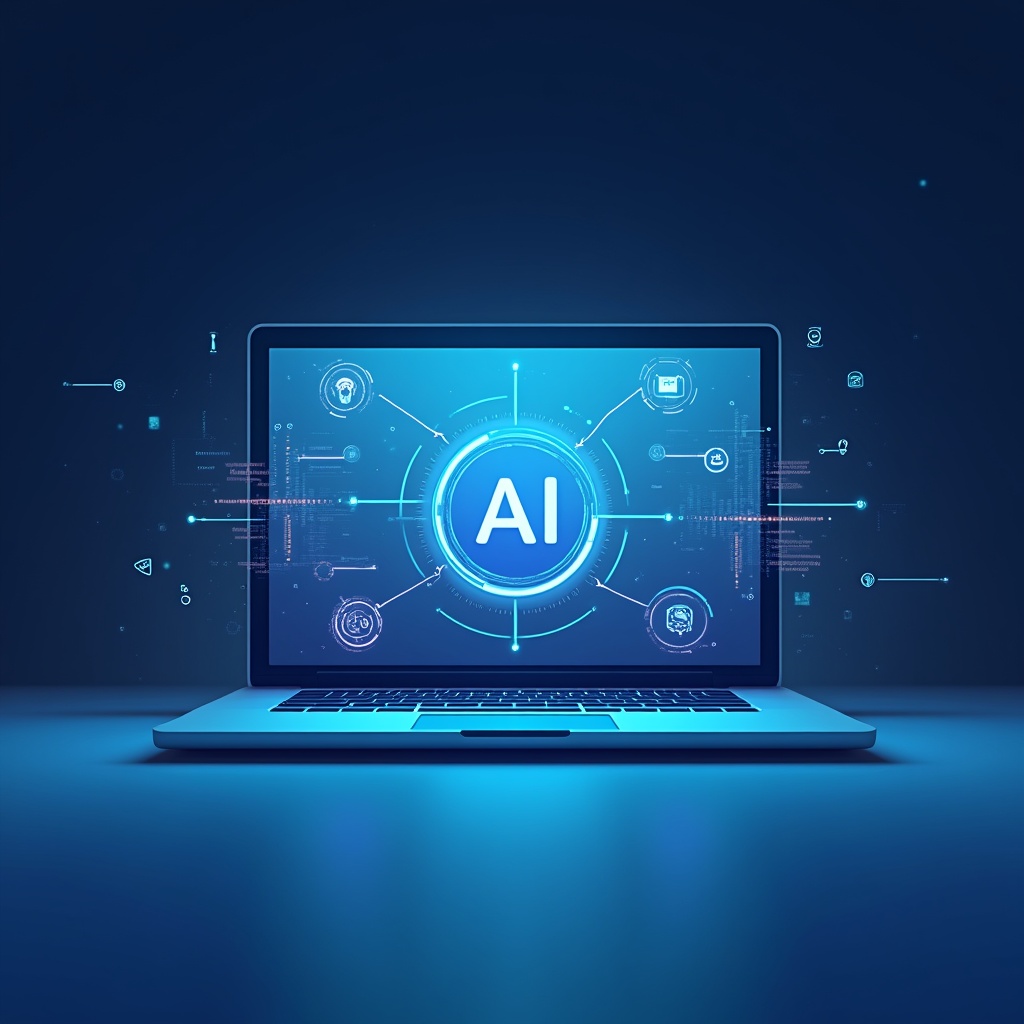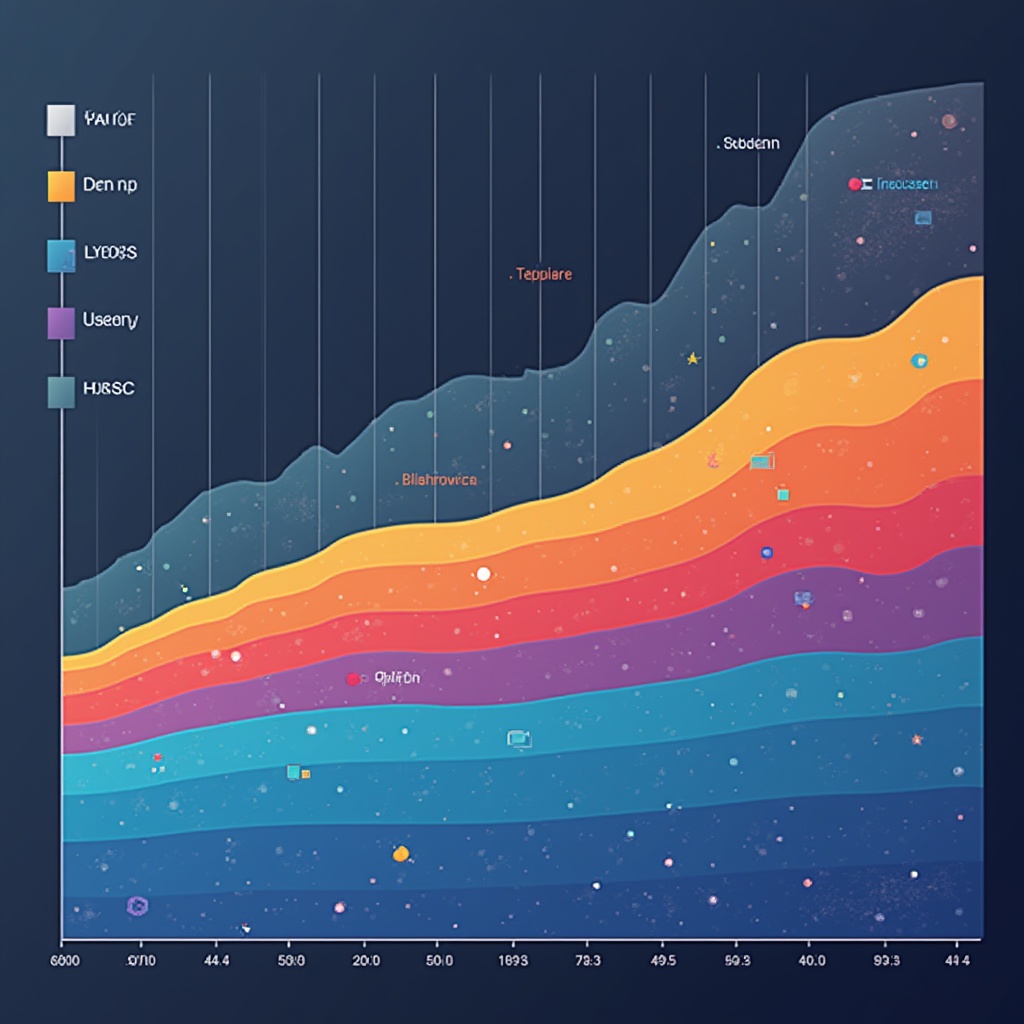The 10 best platforms to master AI skills include Coursera, Microsoft Learn, DataCamp, Udemy, Google AI, edX, Kaggle, Fast.ai, DeepLearning.AI, and Codecademy. These platforms offer structured learning paths for beginners to advanced learners with specializations in machine learning, deep learning, and practical AI applications.
Why Everyone’s Suddenly Scrambling to Learn AI (and Where You Should Start)
So there I was last week, staring at my laptop screen at 2 AM, surrounded by empty coffee cups and existential dread, wondering if the robots were coming for my job. Spoiler alert: they probably are. But instead of panicking (okay, maybe I panicked a little), I decided to join the revolution.
If you’ve been anywhere near the internet lately, you’ve noticed that AI is no longer just sci-fi movie fodder—it’s restructuring entire industries faster than I can restructure my Netflix watchlist. Companies are desperately hunting for AI talent, and the skills gap is wider than teh Grand Canyon.
The good news? You don’t need a PhD from Stanford or a secret invitation to Silicon Valley happy hours to learn this stuff. The digital landscape is blooming with platforms designed to take you from “what’s a neural network?” to “I just built one while making breakfast.”
Let’s break down the 10 best AI learning platforms that can transform you from curious newcomer to confident practitioner, no matter your starting point.
1. Coursera: The Academic Powerhouse
Coursera stands tall as the Harvard of online AI education. Their secret sauce? Partnerships with actual universities and tech giants that bring Ivy League instruction to your living room.
What Makes It Special:
- Andrew Ng’s legendary Machine Learning course (the gateway drug for AI enthusiasts)
- IBM and Google professional certificates that actually hold weight with employers
- Structured specializations that build skills progressively
- Option to earn accredited degrees in related fields
The platform excels at rigorous, comprehensive learning paths that balance theoretical foundations with practical applications. If you’re looking for credentials that recruiters recognize, this is your playground.
Best For:
Career-focused learners who value credentials and structured learning with academic rigor. Their AI specializations bridge computer science fundamentals with cutting-edge applications.
2. Microsoft Learn: The Azure Expert-Maker
Microsoft isn’t just making Windows updates that interrupt your workday—they’ve created one of the most navigable learning ecosystems for AI practitioners focused on cloud implementation.
What Makes It Special:
- Personalized learning paths based on your role and goals
- Direct integration with Azure AI services (learn and implement in the same ecosystem)
- Free certification exam prep with hands-on labs
- Bite-sized modules perfect for busy professionals
Their approach feels refreshingly personalized, guiding you through exactly what you need for your specific career trajectory without overwhelming you with irrelevant material.
Best For:
IT professionals and developers looking to integrate AI into existing systems, particularly those working within the Microsoft ecosystem. The clear pathways to certification make it ideal for credential collectors.
3. DataCamp: Interactive Learning at Its Finest
If you’ve ever tried learning coding from a textbook and wanted to throw said book across the room, DataCamp’s approach will be your salvation. Their browser-based interactive lessons keep your hands busy coding while your brain absorbs concepts.
What Makes It Special:
- Code-in-browser exercises that provide instant feedback
- Project-based learning using real-world datasets
- Focus on data science fundamentals that underpin AI work
- Career tracks that build skills sequentially
What separates DataCamp from the pack is how seamlessly they blend instruction with application—you’re never just passively watching; you’re doing the work in real-time.
Learn more in
Midjourney vs DALL E vs Stable Diffusion best image generator
.
Best For:
Visual and hands-on learners who prefer learning by doing rather than extensive reading. Perfect for those needing to master data manipulation before diving deeper into machine learning algorithms.
4. Udemy: The Buffet of AI Learning
Udemy is the all-you-can-eat buffet of AI education—vast, varied, and sometimes overwhelming in its options. With over 10,000 AI-related courses, you’ll find everything from gentle introductions to highly specialized deep dives.
What Makes It Special:
- Instructor diversity bringing different teaching styles and perspectives
- Frequent sales making premium courses accessible (never pay full price!)
- Practical, project-based courses focused on specific tools and frameworks
- Lifetime access to materials and updates
The platform thrives on instructor competition, meaning the best courses rise to the top through ratings and reviews. This crowdsourced quality control helps you find diamonds in the rough.
Best For:
Budget-conscious learners who want targeted, practical skills rather than comprehensive theory. Ideal for filling specific knowledge gaps or exploring niche AI applications.
5. Google AI: Straight From the Innovation Source
Learning AI from Google is like learning basketball from Michael Jordan—they’re defining the game while teaching it. Their educational resources offer a direct pipeline to cutting-edge practices in the field.
What Makes It Special:
- Direct insights into Google’s approach to AI development
- Focus on practical implementation of machine learning models
- Free TensorFlow courses from beginner to advanced
- Strong emphasis on responsible AI implementation
Their courses emphasize Google’s AI tools, of course, but the principles you’ll learn transfer beautifully across platforms. The material feels fresh and current—no outdated techniques from 2018 here.
Best For:
Practitioners interested in TensorFlow and Google Cloud AI implementations. Their content is particularly strong for those wanting to understand large-scale AI deployment.
6. edX: Academic Rigor With Flexibility
Founded by Harvard and MIT, edX brings scholarly excellence to online learning with courses that don’t sacrifice depth for accessibility. Their AI curriculum spans theoretical foundations to specialized applications.
What Makes It Special:
- University-crafted curriculums with academic depth
- MicroMasters programs that can count toward actual degrees
- Balance of theory and application not found in purely practical courses
- Self-paced options with clear deadlines for those needing structure
The platform excels at structured learning paths that build foundational knowledge before tackling advanced concepts—no shortcuts that leave you with knowledge gaps.
Best For:
Learners wanting academic rigor without committing to a full degree program. Their courses provide excellent theoretical foundations missing from many practitioner-focused platforms.
7. Kaggle: Learning Through Competition
Kaggle isn’t just a learning platform—it’s a global community of data scientists and AI practitioners who learn by competing, collaborating, and solving real-world problems. Think of it as the fight club for AI enthusiasts, except everybody talks about it.
What Makes It Special:
- Competitions with real datasets and problems (sometimes with cash prizes!)
- Notebooks showcasing techniques from leading practitioners
- Micro-courses focusing on practical machine learning skills
- Active community forums where experts share insights
The learn-by-doing approach through competitions accelerates skill development by forcing you to apply concepts in messy, real-world contexts. Nothing tests understanding like implementation.
Best For:
Hands-on learners who thrive on challenges and want to build a portfolio while learning. Perfect for those who learn best by seeing multiple approaches to the same problem.
8. Fast.ai: Democratizing Deep Learning
Fast.ai flips traditional AI education on its head with their “top-down” approach—starting with practical applications before diving into theoretical foundations. Their philosophy is that you don’t need a math PhD to build effective AI systems.
What Makes It Special:
- Practical-first approach making deep learning accessible to non-specialists
- Free, open-source curriculum constantly updated with latest techniques
- Focus on implementing state-of-the-art models quickly
- Strong emphasis on ethical AI development
Their courses demystify complex topics with clear explanations and practical implementations, proving that deep learning isn’t just for academics with supercomputers.
Best For:
Programmers from diverse backgrounds wanting to apply deep learning without getting lost in mathematical theory first. Ideal for those who prefer seeing results before understanding every underlying concept.
9. DeepLearning.AI: From Fundamentals to Frontiers
Founded by Andrew Ng, DeepLearning.AI bridges the gap between theoretical understanding and practical application with carefully structured specializations that build on each other.
What Makes It Special:
- Courses designed to build intuitive understanding of complex concepts
- Programming assignments that reinforce learning through application
- Focus on the latest AI techniques including GANs and transformers
- Specializations in cutting-edge areas like NLP and computer vision
Their content strikes an impressive balance—rigorous enough for professionals while remaining accessible to determined beginners. The progressive curriculum ensures you’re never thrown into the deep end unprepared.
Best For:
Serious learners wanting comprehensive understanding of deep learning fundamentals before tackling specialized applications. Their structured approach works well for methodical learners.
10. Codecademy: Interactive Learning for Beginners
Codecademy’s strength lies in its approachable, interactive interface that makes coding feel like a game rather than a chore. Their AI path starts with programming fundamentals before layering on machine learning concepts.
What Makes It Special:
- Browser-based coding environment requiring zero setup
- Immediate feedback as you complete exercises
- Gamified learning with achievements and progress tracking
- Clear roadmap from programming basics to AI concepts
Their platform excels at breaking down barriers to entry, making the first steps into programming and AI less intimidating for absolute beginners.
Learn more in
Midjourney vs DALL E vs Stable Diffusion best image generator
.
Best For:
Complete beginners without programming background who need to build fundamental coding skills before tackling AI concepts. The interactive approach is perfect for those who find traditional tutorials dry.
How to Choose the Right AI Learning Platform for YOU
With so many options, decision paralysis is real. Here’s a simple framework to find your perfect AI learning match:
Consider Your Starting Point:
- Complete beginner: Start with Codecademy or Google’s crash courses
- Programmer new to AI: Fast.ai or DataCamp provide quick onramps
- Some AI knowledge: DeepLearning.AI or Coursera specializations
- Looking to specialize: Targeted courses on edX or Udemy
Consider Your Learning Style:
- Hands-on learner: Kaggle, DataCamp, Fast.ai
- Conceptual learner: Coursera, edX, DeepLearning.AI
- Project-focused: Udemy, Kaggle, Google AI
- Credential-oriented: Coursera, Microsoft Learn, edX
Common Myths About Learning AI
Before you dive in, let’s bust some persistent myths that might be holding you back:
Myth #1: “You need advanced math to learn AI”
Reality: While math helps with understanding, many platforms like Fast.ai teach practical implementation first. You can build functioning AI systems without solving calculus problems by hand.
Myth #2: “You need expensive hardware”
Reality: Cloud-based notebooks and free services like Google Colab provide access to powerful computing resources. Your 5-year-old laptop is fine for learning.
Myth #3: “One course will make you an expert”
Reality: AI learning is a journey, not a destination. Most professionals combine multiple resources and continuous practice. Be suspicious of any “complete” AI course.
Myth #4: “AI is too complex for beginners”
Reality: Modern platforms have dramatically lowered the barrier to entry. With structured learning paths, anyone with determination can build practical AI skills.
Real-World Success Stories
Still unsure if online learning can really transform your skills? Consider these success stories:
- Sarah, former marketing manager: Completed Coursera’s Machine Learning specialization while working full-time. Built a recommendation engine for her company, leading to a new role as an AI product manager with a 40% salary increase.
- Miguel, high school teacher: Used Fast.ai to build computer vision models that automatically grade student work. Now teaches AI fundamentals alongside physics.
- Priya, financial analyst: Learned through DataCamp, then participated in Kaggle competitions. Developed an algorithmic trading strategy that outperformed her firm’s traditional models.
These aren’t outliers—they’re examples of determined learners who combined structured learning with practical application.
What’s Next? Building Your AI Learning Path
The platforms above aren’t competitors so much as complementary resources. The most successful AI learners combine multiple approaches:
- Start structured: Begin with a comprehensive foundation from Coursera or DeepLearning.AI
- Get hands-on: Apply concepts through DataCamp exercises or Kaggle competitions
- Go specialized: Target specific skills with Udemy or edX courses
- Build projects: Create portfolio pieces that demonstrate your capabilities
- Join communities: Connect with fellow learners for motivation and troubleshooting
Remember, the goal isn’t just accumulating certificates—it’s building practical capabilities that solve real problems. The best learning happens when you’re struggling through an actual project, googling error messages at 1 AM (we’ve all been there).
The AI revolution isn’t waiting, and neither should you. Pick a platform, start a course today, and take the first step toward becoming part of this technological transformation rather than being displaced by it.
Your future self, sipping coffee while your AI models do the heavy lifting, will thank you.






